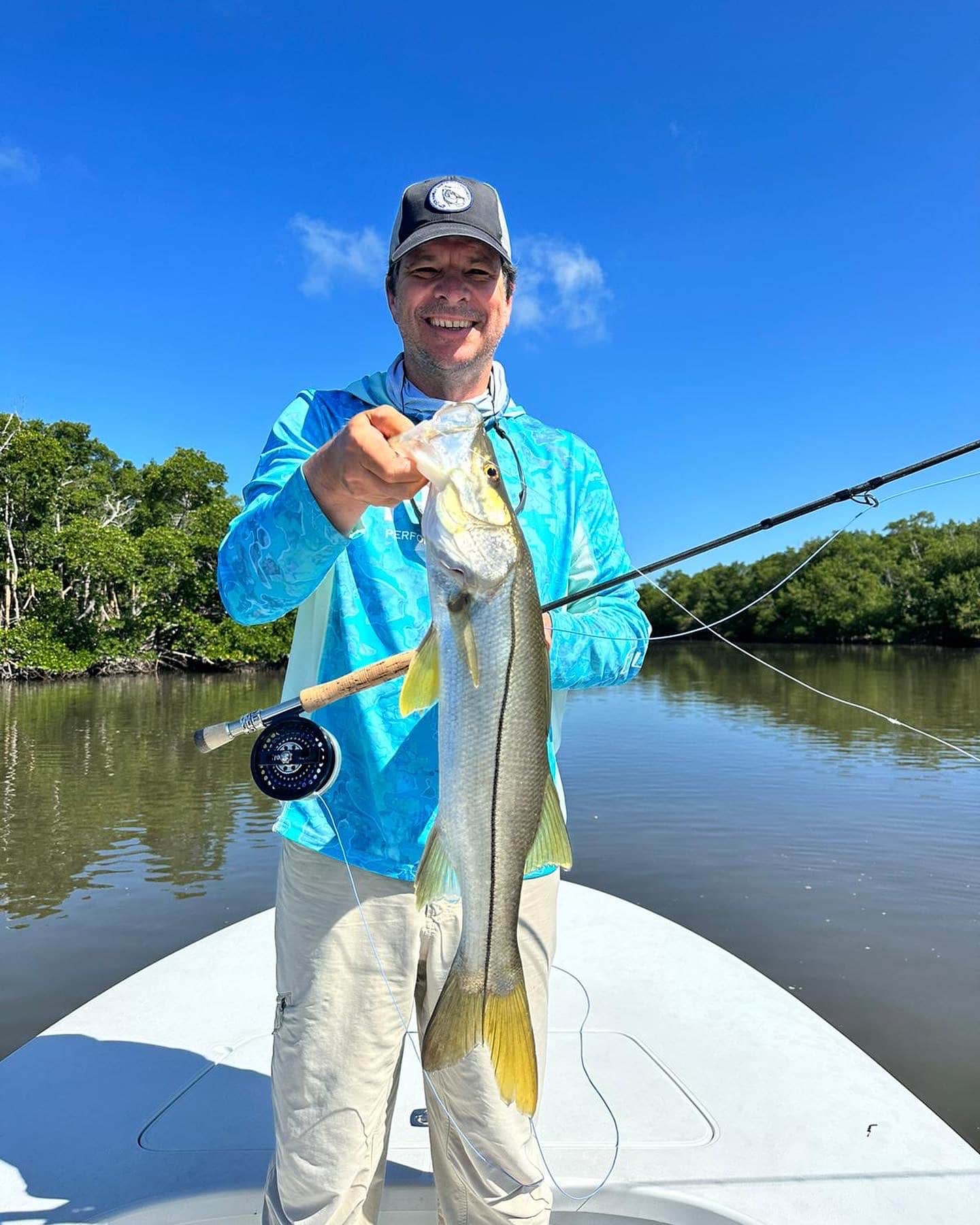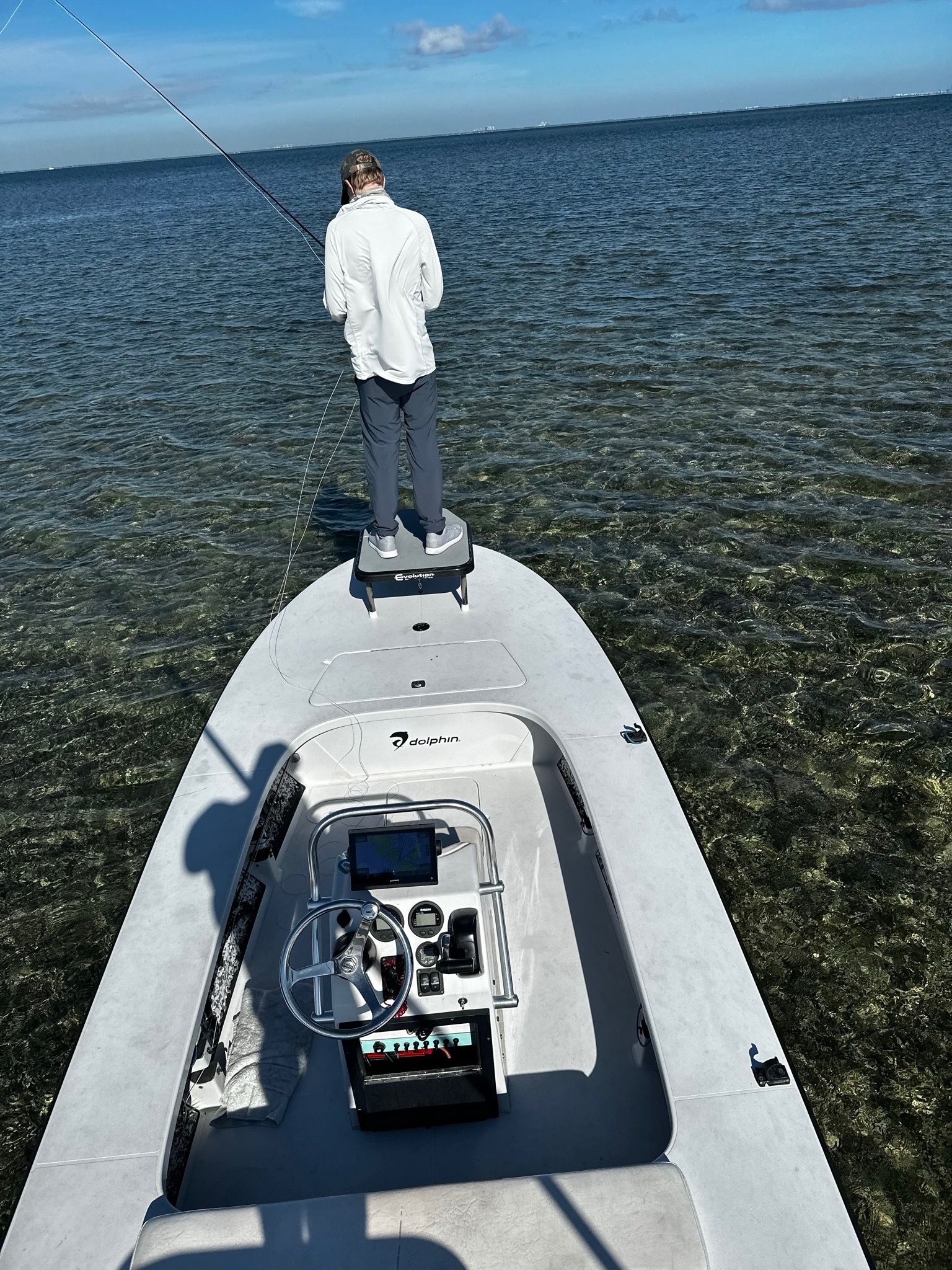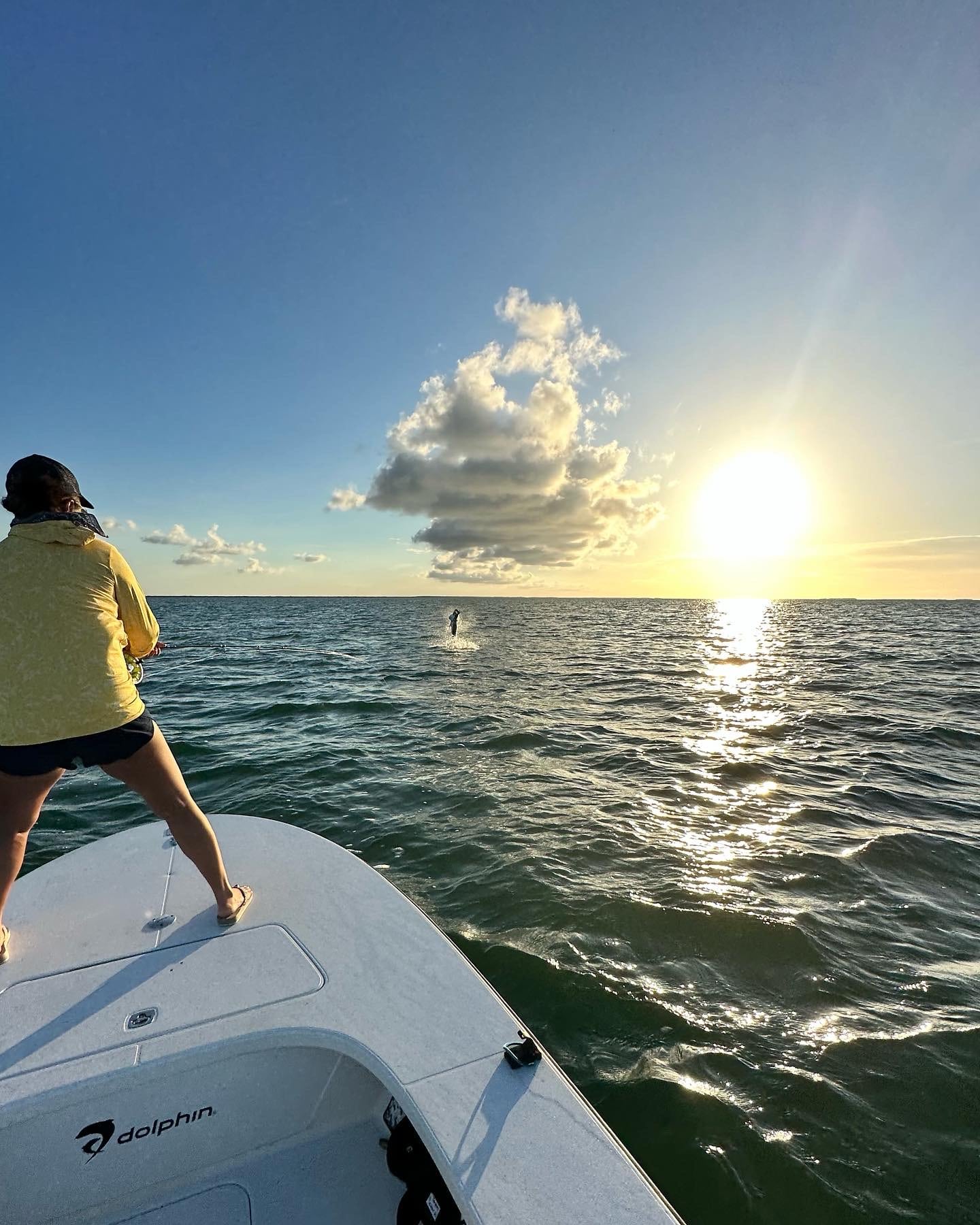Planning your first guided fly fishing trip in Miami can feel overwhelming. Did you know that Miami’s inshore waters are home to a diverse range of fish species making it a top destination for fly fishing? This blog will help ease your worries by providing crucial tips on weather precautions, selecting guides, and preparing the necessary gear.
Read on to catch the excitement of a well-planned fly fishing adventure!

SNOOK
Miami’s fly fishing scene is an adventure waiting to unfold for both novice and experienced anglers. The city is famed for its turquoise waters that are home to a plethora of fish species like tarpon, snook, permit, bonefish, shark, and more. As such, Miami’s inshore fishing offers unique opportunities that not many other locations can match.
Biscayne National Park is one exceptional spot where you can explore this unique style of catch-and-release angling under the guidance of local expert guides such as Shallow Tails Guide Service Inc.
Hiring a guide for your fly fishing trip in Miami offers numerous benefits and ensures a successful experience on the water.
Hiring a guide for your fly fishing trip in Miami offers numerous benefits. Firstly, local guides have extensive knowledge of the area waters and can provide information on other rivers, streams, and lakes nearby.
Their experience and expertise mean they are well-versed in local fishing conditions, allowing them to maximize your chances of success. By hiring a guide, you can save valuable time by eliminating the need to learn spots and flies on your own.
Additionally, beginners will greatly benefit from a guide’s assistance as they can help you better understand the sport and the specific area you plan to fish. So whether it’s improving your skills or exploring new fishing spots, hiring a knowledgeable guide is definitely worth considering for an unforgettable fly fishing experience in Miami.

Miami Flats
To have the best guided fly fishing trip in Miami, it is crucial to research and choose the right guide. Here are some steps to help you make the right decision:
To make the most out of your guided fly fishing trip in Miami, it’s crucial to communicate your preferences and expectations to your fishing guide. By doing this, you can ensure that they understand what you’re looking for in terms of the fishing experience, including the type of fish you want to target and any specific techniques or areas you’d like to explore.
It’s also important to let them know about any limitations or concerns you may have so that they can plan accordingly and provide appropriate accommodations during the trip. Effective communication with your guide sets the stage for a successful and enjoyable fly fishing adventure in Miami’s waters.
Preparing for the trip involves checking your equipment and gear, packing essential items like food, water, sunscreen, and insect repellent, as well as planning transportation and logistics.
Ensure that you have all the necessary equipment and gear for your guided fly fishing trip in Miami. Here are some important items to check:
Don’t forget these important items when packing for your guided fly fishing trip in Miami:
Planning transportation and logistics is crucial for a successful guided fly fishing trip in Miami. To ensure a smooth experience, consider the following:
Having the right gear and equipment is essential for a successful guided fly fishing trip in Miami. First and foremost, it’s important to have a quality fly rod and reel that matches the type of fish you’ll be targeting.
Make sure your rod is appropriate for the size of fish you expect to catch, whether it’s small trout or large tarpon. Additionally, having a variety of flies in different sizes and patterns will increase your chances of attracting bites.
If you want to make the most of your guided fly fishing trip in Miami, it’s important to learn and practice fly fishing techniques beforehand. Here are some tips to help you improve your skills:

Proper fish handling and release are essential components of ethical angling and responsible fishing practices. By knowing how to handle fish correctly, you not only show respect for the environment but also contribute to the conservation of fish populations and the overall health of aquatic ecosystems.
When catching a fish, it is important to handle it with care to minimize stress and injury. Remember to wet your hands before touching the fish to protect its delicate slime layer.
Additionally, avoid squeezing or gripping the fish too tightly and try not to remove it from the water for extended periods of time. Properly releasing your catch allows it to swim back safely into its natural habitat, ensuring its survival and allowing others to enjoy catching them in the future.
Handling a caught fish properly involves more than just releasing it back into the water; understanding when to keep or release your catch plays an important role as well. It is crucial to know any fishing regulations that apply in your area regarding size limits, bag limits, or protected species.
If you must release a fish due to regulations or personal choice, take extra care during this process. Use proper tools such as landing nets or dehooking devices whenever possible to minimize harm done while removing hooks from a fish’s mouth.
Protect and preserve the beautiful natural environment in Miami by following these important Leave No Trace principles:
Follow these tips to ensure that you are fully prepared for a guided fly fishing trip in Miami. Practice your casting, communicate with your guide, and dress appropriately for the weather conditions.
Also, make sure to have all of your gear ready beforehand and focus on making good cast while fishing. By following these tips, you’ll be well-equipped to have an enjoyable and successful fishing experience in Miami’s waters.
1. What should I bring on a guided fly fishing trip in Miami?
For a guided fly fishing trip in Miami, it is recommended to bring essentials like sunscreen, insect repellent, polarized sunglasses, a hat for sun protection, fly rods, and comfortable clothing that can get wet.
2. Do I need to have previous fishing experience for a guided fly fishing trip?
Having the basic fundamentals of saltwater fly casting is important to having a successful day fly fishing the flats.
3. How long does a guided fly fishing trip usually last?
The duration of a guided fly fishing trip can vary depending on the guided trip you have chosen. Typically, trips last anywhere from 4 to 8 hours.
4. Is it necessary to bring my own equipment for a guided fly fishing trip?
While some guides may provide equipment, it’s generally recommended to bring your own fly rod and reel with appropriate line weight and flies. It’s best to check with the guide beforehand regarding equipment requirements.